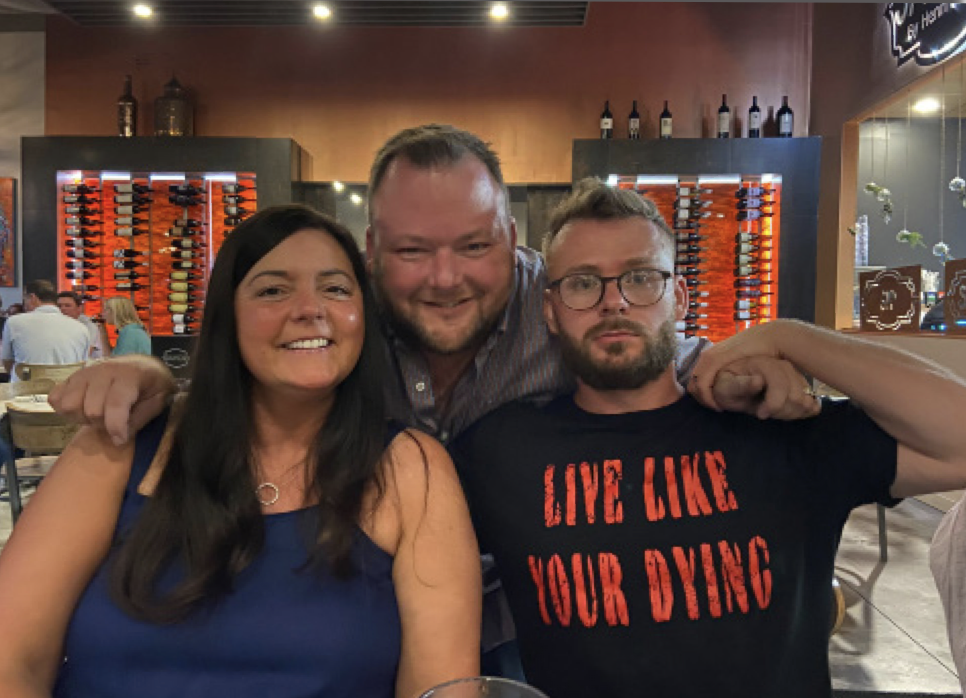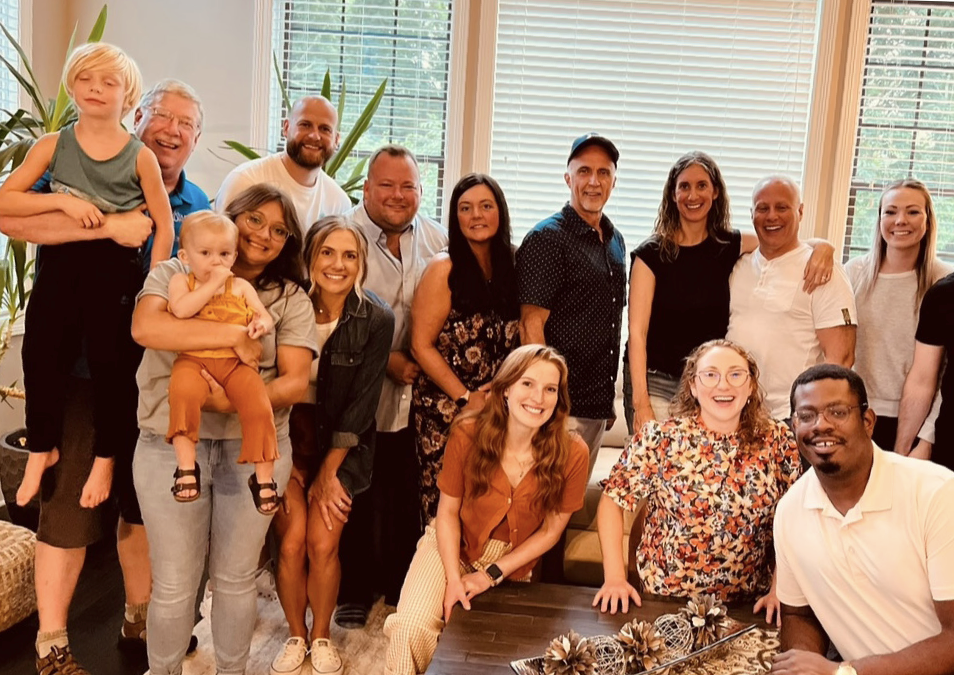If you feel like you’re too busy to prioritize the relationships in your life, read this.
By Heather Hunter
Have you ever gotten a message from a close friend that reads something like this:
Hey! I read/saw something that made me think of you the other day. How have you been doing? We should meet and catch up soon!
And then looked at your calendar and realized you have no availability for an entire month?
You might feel frustrated with all the obligations that are keeping you from pouring into your friendship. Perhaps you feel guilty and disappointed in yourself for dropping the ball on your relationships. Or, if you’re like a lot of people in the business world, you may even justify it by assuring yourself you’re only busy because you’re putting the right relationships – the ones that have some tangible purpose – first.
But the truth is, you’re just overcommitted.
The Overcommitment Epidemic
Over the past several months, there’s been a lot of talk on LinkedIn and in other professional circles about how hard it is to find people – especially contractors and volunteers – that will commit to showing up. Most leaders attribute this to laziness or poor work ethic, which is true in some cases. But for a lot of good-hearted people, it’s also really hard to say no to things.
In a 2019 study by VitalSmarts, 60% of people said they’ve agreed to accomplish more than they’re capable of doing in the time they have available. Another 20% say they’ve reached their absolute limit of what they can commit to – which means 80% of all the people surveyed self-identify as overcommitted.

Even worse, of those 80%, a whopping 81% say that their commitments mean they’re only “truly present” in their lives between 0% and 50% of the time. The study doesn’t say anything about the impact these numbers have on the subjects’ important relationships, but it’s probably safe to assume it isn’t good.
It’s possible that COVID has created an even larger culture of overcommitment than we realize. Being asked to freeze a lot of our activities forced us to back down on many of our commitments. Now that in-person events are back, and obligations are in full swing, it’s so exciting to “do” instead of dream. It’s just the author’s theory, but in all that excitement, we may have lost track of how much time we actually have the ability to give to others. And that means we can’t prioritize the people in our lives who deserve that time the most.
The Five-Finger Rule – Stop the Cycle of Overcommitment
Several months ago, we shared the concept of the five-finger-rule in the Synergize Women’s Group, EmpowHer. A few of that session’s attendees are still talking about it to this day!
Unlike the five-finger discount, the five-finger rule has nothing to do with stealing things – unless you’re referring to stealing back your time and peace of mind. The basic premise of the rule states that everyone has time to fully commit to five things – one for each finger – before something starts to slip.
If you read that and immediately thought “yeah, I do too much to even think about that idea”, keep reading. You’ll be surprised at how much actually fits into five fingers – and how much you’re probably trying to squeeze in that you shouldn’t be.
For example, here’s the author’s five-finger layout (NOT in order of importance):
- Faith
- Work/Career
- Family
- Side Hustle
- Friendships
If I want to add another obligation, something has to come off the list.
If you’re looking at this and thinking “that’s it?” Let’s break down how much actually goes into each item on the list:
- Faith: For my personal practice, this involves weekly church attendance or online service and a biweekly small group that lasts 2.5 – 3 hours. It also involves personal time and study on my own.
- Work/Career: Involves the 8-5 job, plus extra events.
- Family: Involves spending dedicated time with my fiancé and investing in our relationship. I don’t have kids yet, but this will someday involve them too – they may even get their own spot.
- Side Hustle: This includes one-off freelance work, and currently, learning to write grant proposals.
- Friendships: I’ve been working on building deeper, more committed friendships with some of my casual friends. Synergize is something that helps me a LOT with this!
Now add chores and errands, random events like birthday parties, healthcare, dinner with friends, and all the other basic things that aren’t in The Big Five – things that we don’t think of as commitments, but still take time – and suddenly, that adds up to a lot more than it seems.
Take a few minutes and make your list.

If you have a job that demands a lot of your time, or a child that requires round-the-clock care, you may only be able to list four. That’s okay!
On the flipside, you may feel like you can fully commit to more than five things. That may be possible. When you really break down the time you spend on each one, ask yourself whether that time still leaves you enough bandwidth to commit fully to everything else without letting something slip. If you can honestly say yes, then add a sixth and see how it goes.
Some things your list might include:
Scheduled fitness (training, classes)
Serving on a non-profit board
Side projects like podcasts, weekend gigs, or freelancing
Being a bigger part of your community, which may include attending events around your city
Going to school or taking a class
Clubs or groups with regular meetings
Spending time with kids
Traveling
Clubs or groups
Sometimes, you’ll find that an activity can cross between your priorities. For example, if you want to prioritize meeting people in your community, personal growth, and contributing to impact and causes, you can hit both of them by spending time at Synergize events!
One final tip: do it for you.
The VitalSmarts study from earlier in the article also asked its subjects why they’d committed to so many things. The vast majority – 73% – cited a “desire to be helpful, accommodating, and polite”. That’s awesome, but it’s good to keep in mind that half-committed help, even if it’s fueled by the right motivation, can cause undue stress both on us and the person we’re trying to help.
At Synergize, we ultimately believe that our relationships with other people are the most essential piece of our well-being in life. Their importance should be present in every piece of our lives. Many of our members began their relationships with us by coming to us and saying they feel like they’re “missing something.”
The truth is: people who are overcommitted consider themselves too busy to build real relationships. They’ll revert to focusing only on transactional ones – the ones that will help them in some way, because that way, they’re not “wasting time”. And then years pass, and one day, they wake up and realize there’s a big empty space in the center of the puzzle.
That said, make sure the things you’re putting on your list are going to help you, and your relationships, first. You could even couple things with the relationships you want to deepen. Commit to a class with your mom. Make volunteering something you do with your spouse. Or network with people who will help you grow both personally and professionally – and possibly become some of your closest friends, cheerleaders, and supporters – by being part of Synergize.


